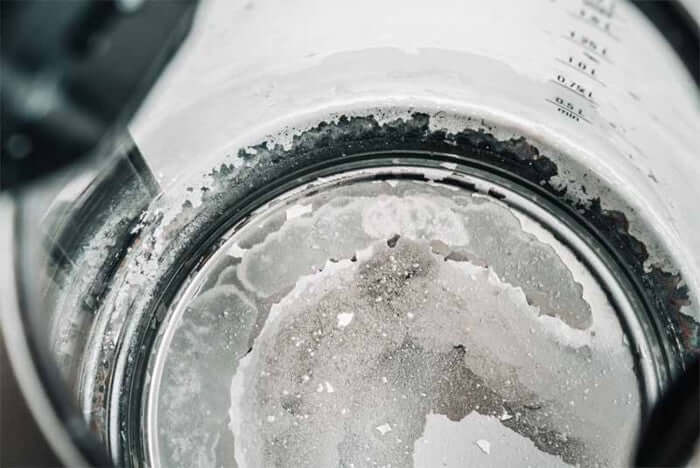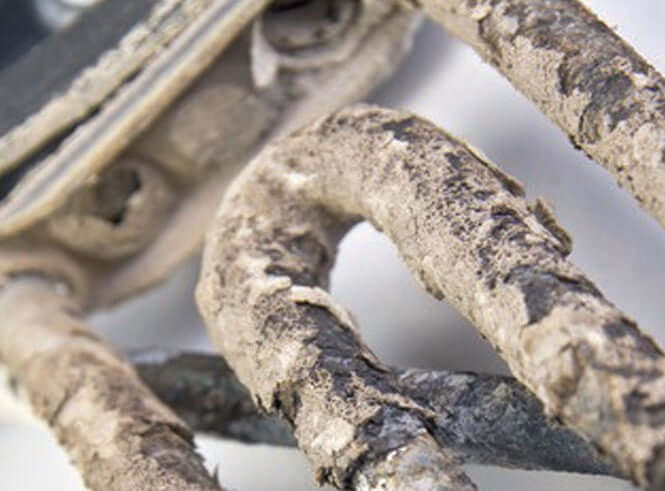With energy bills due to increase due to rising inflation and increased global tensions, the first thing a homeowner may do is to refer to search engines in the hope of conducting a gas and electricity comparison. However, what if there happened to be a way in which you could directly contribute to lower energy bills via the implementation of limescale control?
Much in the way that taps, showers and kettles become home to the build-up of limescale, so do boilers and central heating systems. What this means for you is that, effectively, a significant amount of limescale within your heating system can directly contribute to a lack of usage efficiency, leading to a rise in energy costs.
What is Limescale?
Effectively, limescale is a chalky build-up of the calcium carbonate often found in water: typically, in areas which have what is known as hard water – which contains higher concentrations of various minerals, including magnesium and calcium.
The chalky deposits can form virtually anywhere with the presence of water – think kitchen taps, shower heads, shower screens and even the boil plate of your kettle – creating sections of crumbly, scummy or even furry residue: not a very welcoming or appetising sight.
If ignored, limescale can quickly build up in your pipes and on the surface of elements in utensils such as boilers, washing machines and dishwashers: particularly reducing the efficiency of said equipment, causing a steady increase to your utility bills, as well as repair/replacement cost due to machinery breakdown.
Implementing limescale control within your home – such as via the use of a water softening device – would be advisable, as it is estimated that hard water is responsible for approximately 70% of all water processing equipment failures within the home. Considering that ScaleGuard has found that over 60% of the UK is said to have hard/very hard water, there is a distinct possibility that your appliances have a build-up of limescale.

Why Your Home May Need Limescale Control
There are three key reasons why it is advisable to implement a limescale control protocol within your home. They are:
- Reducing the limescale: simply put, limescale is a by-product of running water, and, as it is not essential to the process, mitigating the damage it may cause is to the benefit of your home and its contents.
- Saving money on energy bills: as limescale drastically reduces the efficiency of your appliances, it is best to eliminate it. It is believed that a mere 3mm build-up of limescale can increase your yearly energy costs by approximately 15%: that is less than half of a centimetre! With energy price increases on the horizon, getting on top of limescale control will have a positive impact on your bottom line.
- Preventing damage to your appliances: limescale control can prolong the lifespan and longevity of your central heating system and boiler, whilst also protecting your taps, shower, dishwasher and washing machine from long-term damage caused by limescale build-up.

How to Descale Your Boiler
Think of the process of removing limescale from your boiler and central heating system as one which is as fundamental and necessary as bleeding radiators: perhaps even more so.
The simplest and most effective way of removing limescale from your boiler is a power flush: a combination of water and specially formulated chemicals put through your pipes, radiator and boiler to breakdown any build-up of residue, gunk and limescale deposits from your system and flush them out.
A fortunate takeaway from a power flush is that it doesn’t remove only limescale, but it will also withdraw pieces of excess rust and debris, also helping to contribute to more efficient central heating systems and boilers.
PlumbHub offers several easy-to-use multi-purpose immersive descalers and power flush chemicals that you should consider using when you believe your water systems require a power flush, including Kilrock-K Multi-Purpose Descaler, Fernox Superconcentrate Limescale Preventer, Sentinel X800 Fast Acting Cleaner and Regin Premier Central Heating Cleaner.
Signs of Limescale Build-Up
There are a number of signs that may suggest the systems in your home are afflicted with limescale build-up, they include:
- Overly noisy radiators
- Leaky radiators
- Boiler making excessive noise
- Cloudy or discoloured tap water
- Radiators require significant time to heat up
- Murky water from bleeding radiators

How to Prevent a Build-Up of Limescale
Once your water treatment systems and appliances have been cleaned of any excess limescale build-up, it is advisable to mitigate any future occurrences of limescale by implementing some preventative limescale control measures. The two most common forms of limescale control are the use of water softeners and scale reducers.
Water Softeners
Simply put, water softeners will remove the excess minerals from water that particularly contribute to the build-up of limescale. PlumbHub stocks a variety of Scalemaster water softeners, dependent on your particulr requirements.
Scale Softeners
Scale softeners come in two varieties:
- Magnetic scale reducer – similar to a water softener, a magnetic scale reducer will collect the minerals responsible for limescale before entering your system.
- Electrolytic scale reducer – these work by completely altering the structure of limescale, so that is not able to fix itself to the inside of pipes or onto the surface of elements.
Is Limescale Bad for Humans?
On the whole, limescale isn’t bad for humans - though it is annoying, inconvenient and unsightly – so, worry not if you see a small amount of limescale build-up in your kettle or on your showerhead.
Limescale is, however, terrible for your appliances and boiler if it is allowed to build up. So, even though it is not bad for us, the lifespan of your appliances and water treatment systems may be significantly negatively affected; therefore, it is advisable to commit to regular limescale control measures within your home.
Don't forget to to subscribe to our mailing list!
Should you require any more information or would like to request quotes on bespoke radiators, bath panels, bathroom furniture, showers or other plumbing essentials, contact the experts at Plumbhub.
Also, check our previous helpful blog articles: bleeding radiators, the importance of shower trays, and our guide to bath panels.

Don't forget to sign up to the Plumbhub Mailing List for 5% off your first order!

